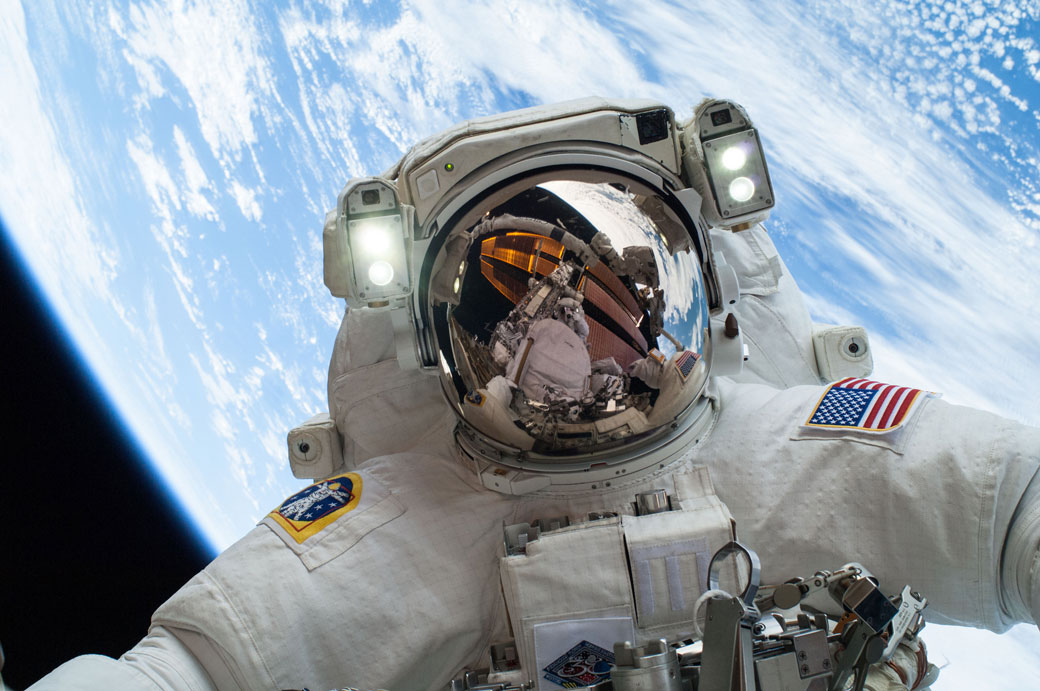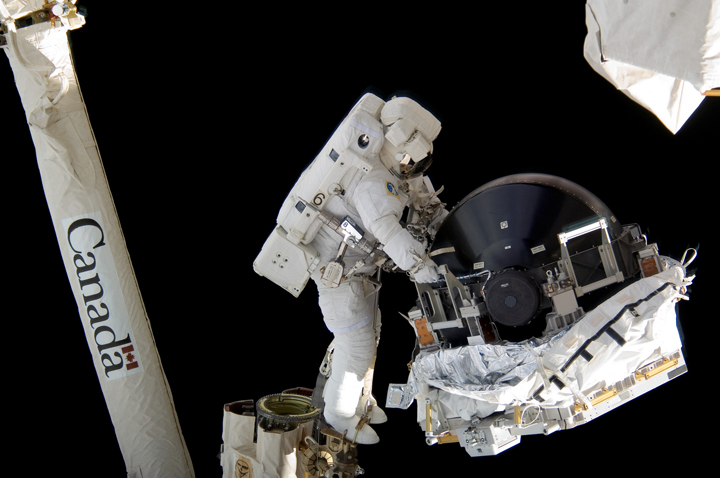An Air Force doctor from Nevada is taking home US$15,000 after successfully figuring out how to help astronauts poop in their spacesuits — without making a mess.

It’s a problem that had baffled NASA for years, and one that was critical to solve before humanity embarks on missions beyond Earth’s orbit.
Astronauts on the International Space Station currently use something akin to a diaper for space-walks that can last for a few hours at a time, but anyone stuck outside in a suit for more than a few days could face death if their loo-less suits don’t have some kind of built-in system to evacuate human waste.
READ MORE: Pool of potential Canadian astronauts down to 72
After trying to work it out for a bit, NASA issued a call for submissions from members of the public who thought they were up to the challenge. The winner, announced Wednesday, was Thatcher Cardon, a United States Air Force officer, family doctor and flight surgeon.
His model, according to an interview he granted to NPR, relies on a tiny “airlock” built into the crotch of the suit, plus some inflatable diapers and bedpans that can be passed in and out through the opening.
Cardon said the non-invasive idea took advantage of current medical technology that allows doctors to work on the body through similar small openings.
“I mean, they can even replace heart valves now through catheters in an artery. So it should be able to handle a little bit of poop!”
Precise details of the winning poop-suit were not immediately available from NASA. Close to 20,000 people making up 150 teams submitted more than 5,000 ideas, but only three netted a top prize.
WATCH: How studying twin astronauts can help with a future mission to Mars

The runners-up were a team dubbed the Space Poop Unification of Doctors (SPUDs), who earned $10,000 in prize money, and a U.K. product designer named Hugo Shelley, who received $5,000 for his idea.
In order to qualify, the submissions had to collect human waste for up to six consecutive days and move it away from the astronaut’s body, without the use of hands. They also had to work in zero gravity and be ready to test by NASA almost right away.
“It was invigorating to see the number of people interested and engaged in the challenge,” said Kirstyn Johnson, spacesuit engineer at NASA’s Johnson Space Center in Houston, in a release.
“From here, we’ll be able to use aspects of the winning designs to develop future waste management systems for use in the suit.”
- Ontario First Nation declares state of emergency amid skyrocketing benzene levels
- Singh mulls TikTok return as U.S. nears potential ban over security fears
- More financial institutes are offering crypto-services, survey shows
- Possible TikTok ban in U.S. looms after Biden signs bill, setting up legal fight





Comments